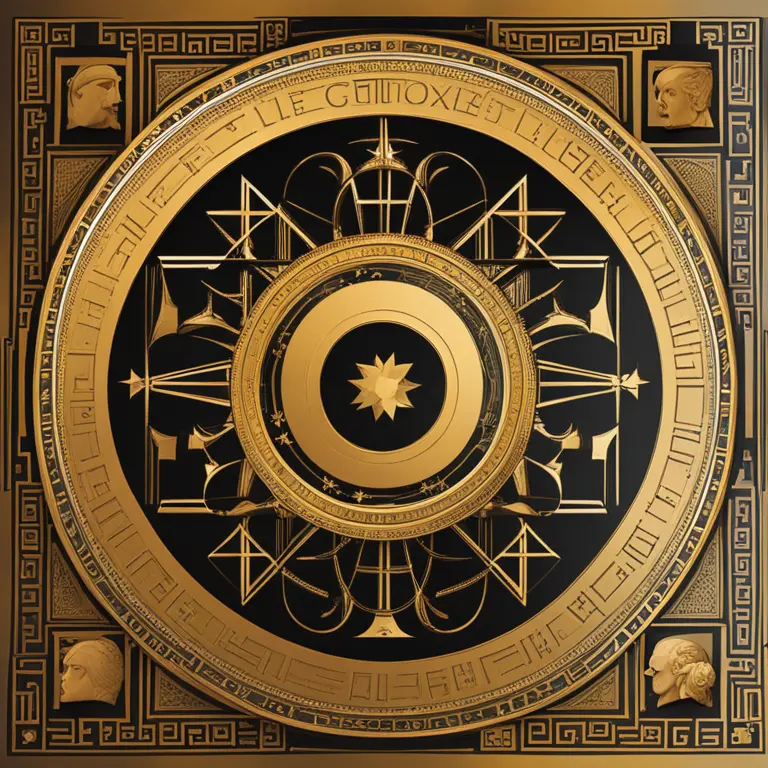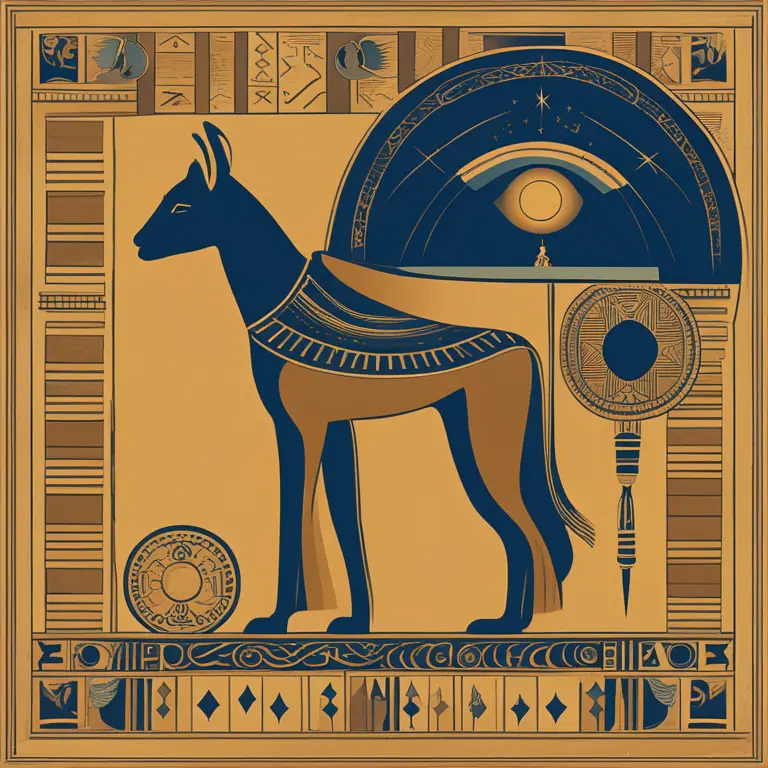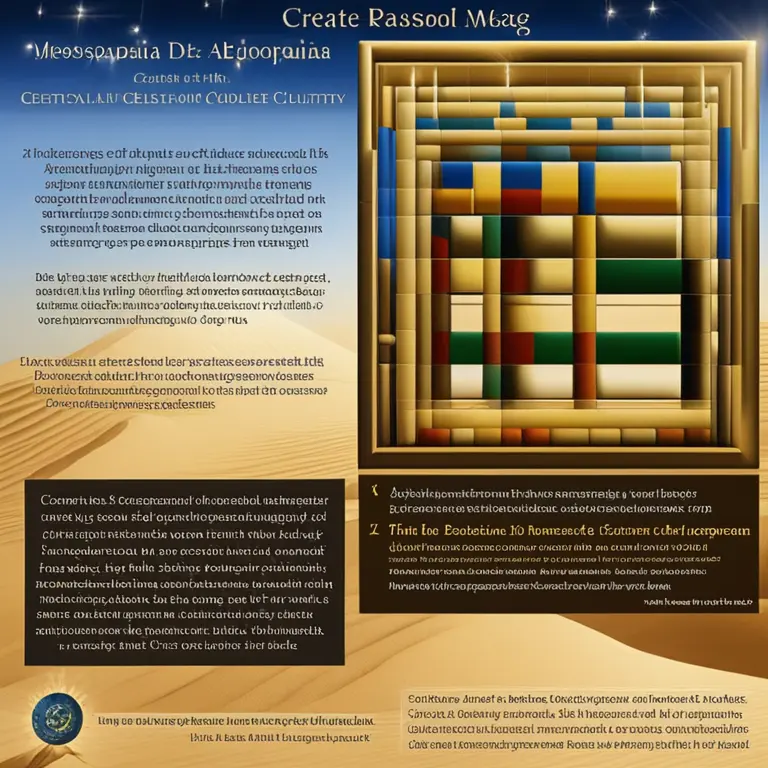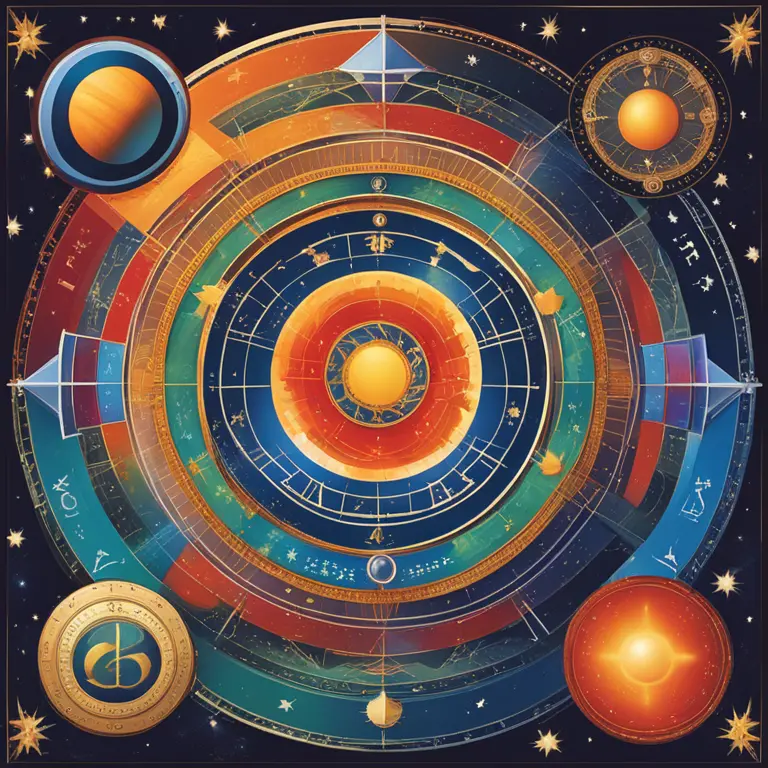
The Dawn of Astrology: Tracing Its Ancient Origins
Explore the ancient beginnings of astrology, its evolution through civilizations, and its enduring impact on modern spiritual and self-awareness movements.
article by Priya Deshmukh
The Genesis of Astrology
Astrology's journey began millennia ago, transcending mere fascination with the stars into a structured belief system. Ancient civilizations observed the skies, noting patterns and celestial events that they believed influenced life on Earth. These early sky watchers, whether in Mesopotamia, Egypt, or China, paved the way for astrological practices. They meticulously mapped the heavens, and soon, astrology emerged as a tool for prophecy and guidance, integrating with cultural and religious beliefs. These roots anchor astrology in a long-standing tradition of seeking meaning beyond the material world. The quest to understand one's place in the cosmos has always been an intrinsic human endeavor.

Mesopotamia: Astrology's Cradle
Astrology's organized form can be traced back to ancient Mesopotamia, around the 2nd millennium BCE. The Babylonians were the first to apply myths to celestial occurrences, creating a celestial narrative that they believed governed destiny. They meticulously recorded planetary movements, especially of Venus, which they associated with the goddess Ishtar. Their astrological texts laid the foundation for the zodiac and horoscope systems, dividing the sky into segments that later evolved into the familiar twelve signs. These advances were crucial in shaping astrology's fundamental structure, which remains relevant to this day in contemporary astrological practices.

Egyptian Influence and the Zodiac
Concurrently, Egypt's contribution to astrology's genesis was equally significant. They integrated astrology with their pantheon and cosmology, influencing Greek astrological studies centuries later. The concept of the "Dendera Zodiac," a celestial map found in the Temple of Hathor, showcases the depth of Egyptian astrological knowledge. Astrological influences from Egypt likely mingled with Hellenistic cultures, as Alexander the Great's conquests facilitated an exchange of knowledge. This blend of traditions enriched astrology, expanding the Hellenistic zodiac that closely mirrors the astrological signs used in the Western world today.

The Greek Philosophers and Astrology
The intersection of Greek philosophy and astrology proved to be a turning point. Figures like Ptolemy, whose work 'Tetrabiblos' became a cornerstone in astrological scholarship, strived to categorize and rationalize astrological beliefs within a scientific framework. The Greeks inherited and further refined the zodiac by introducing the concept of the Ascendant and the use of houses. They propelled astrology from regional to a more systematized body of knowledge that bridged cultural boundaries. This period witnessed astrology's golden age, with horoscopes becoming increasingly personalized and complex.

The Renaissance and Astrology's Survival
The Middle Ages and the Renaissance saw the continued flourishing as well as the suppression of astrology. Despite the Church's resistance, the Renaissance era reaffirmed astrology’s intellectual and cultural value. Celebrities like Nostradamus and figures within the royal courts often utilized astrologers. The printing revolution made astrological materials more accessible to the public, embedding it deeply in social and political spheres. This age demonstrated astrology’s resilience, thriving despite shifts in scientific paradigms and religious sentiment.
Modern Astrology's Resurgence
In the contemporary era, astrology has witnessed a renaissance as a spiritual and psychological tool. With advances in technology like software and apps, accessing astrological charts and readings has never been easier. It has diversified and adapted, embracing the principles of psychological astrology, which integrates Jungian theories, and even elective astrology, which seeks optimal timing for events. Astrology remains a bridge between the past and present, a testament to humanity's enduring quest for wisdom through the stars and planets that watch over us.
Published: 1/12/2024
Modified: 1/12/2024
More predictions
Come back here soon to learn more about yourself and your future


The Accuracy of Astrology Charts: A Deep Dive
Evaluating the precision of astrology charts in modern practices and the debates surrounding their validity.


The Connection Between Astrology and Astronomy
Discover how astrology and astronomy share a historical background yet diverge in their modern-day applications and beliefs.


The Truth Behind Astrology Readings
Dive deep into the realm of astrology to discover if there's any truth to astrological readings and the stars' influence on our lives.